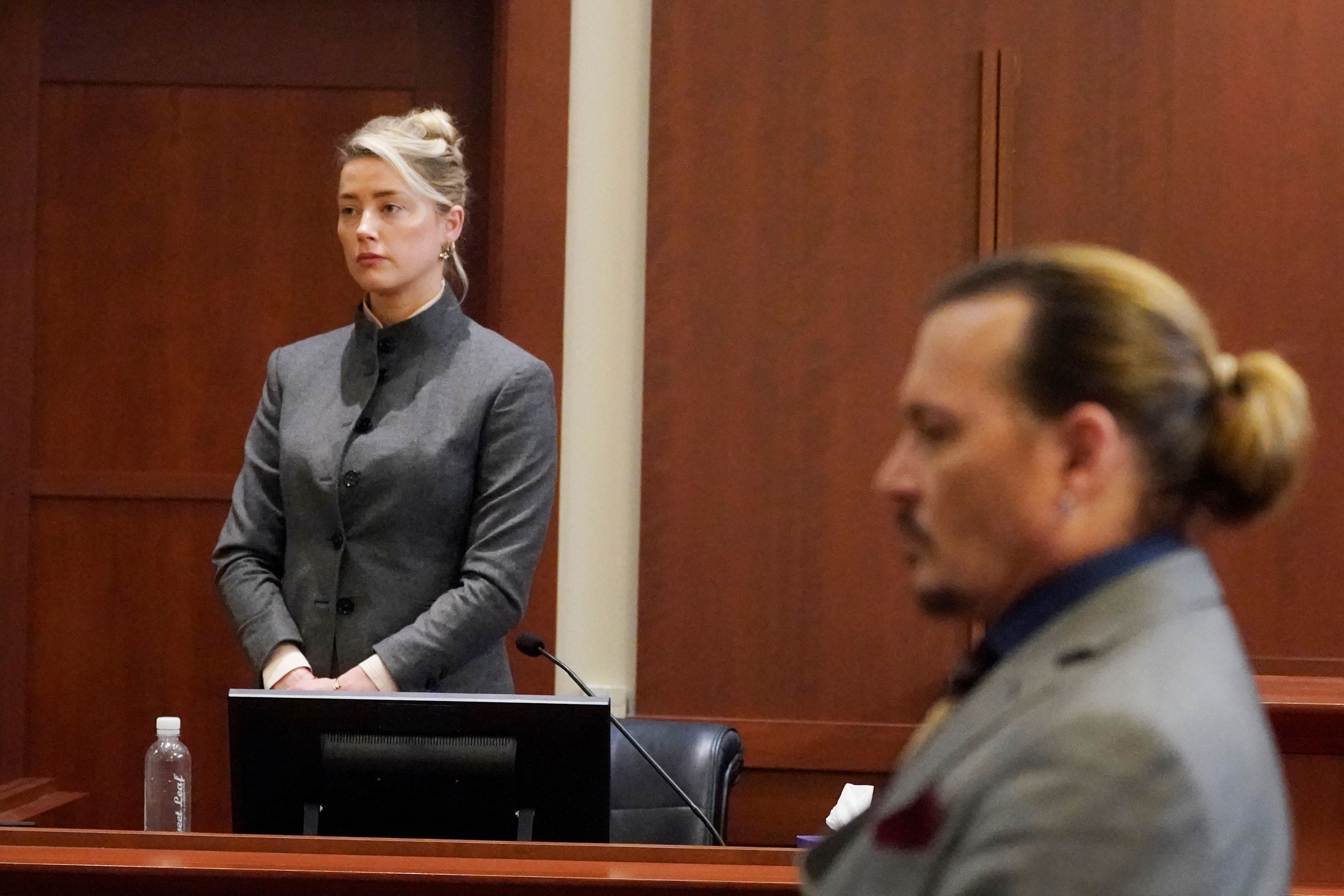Analysing data from the Depp v Heard trial is more complicated than you’d think
I analyse audience interactions all day, every day – and I know that sometimes a story isn’t quite what it seems, writes Lucy Anna Gray


After a week-long hiatus, Amber Heard has once again taken the stand in the defamation trial brought against her by Johnny Depp.
Heard is being sued by Depp for her 2018 Washington Post op-ed in which she implied he abused her, although did not name him. The Pirates of the Caribbean star claims her allegations impacted his ability to obtain work.
With the most A-list of A-list names being dropped, court live-streams and at times truly disturbing, baffling testimonies, it is no wonder Depp v Heard has gained the attention it has. But it is not the case alone under the spotlight. Reactions – and commentary about the reactions – have become just as popular. TikToks defending Depp and conspiracy theories about Heard abound. Psychological analyses of superfans have appeared across the internet. Axios recently published a piece headlined “America more interested in Depp-Heard trial than abortion” that claimed people are more interested in the trial than in the possibility of the Supreme Court overturning Roe v Wade because social media interactions are higher on terms related to Depp and Heard.
Interactions – in other words, people liking, commenting and sharing articles across social media – don’t necessarily directly equate into reader interest. However, they do show what people are keen to discuss with each other. The top two Facebook pages that have gained the most interactions around the Depp v Heard trial are in fact not news outlets, but a Spanish language blogger and a Spanish language voice actor, according to Newswhip data.
If we look at Facebook interactions since the trial began (11 April) on stories including key words relating to Depp v Heard, the top stories are broadly critical of Amber Heard. According to the data, Bill Burr saying Johnny Depp deserves public apologies if Amber Heard loses took the top spot in terms of popularity with reader interactions. That story is followed by numerous articles from various outlets about the petition to remove Amber Heard from Aquaman 2.
And if we look at data via Google Trends, the topics people are searching for come to light. This shows what people want to know privately as well as what they want to discuss openly. The top searches relating to Amber Heard and Johnny Depp pertain to live-streams of the trial, and their net worths. Other terms that spiked have been “Aquaman”, “finger cut off”, “Shannon Curry” and “lawyers”.
Although there is undeniable interest in the case, comparing news events such as the abortion memo from the Supreme Court with the trial in a like-for-like manner is complex. There are a variety of different search terms people may google for the overturning of Roe v Wade, and for a truthful data analysis they really need to be parsed out and/or clubbed together according to relevancy: “Roe v Wade” and “Roe vs Wade” should be considered together, for example; as should “Supreme Court” and “SCOTUS”. It’s also worth bearing in mind that abortion is a thorny, personal issue for many in the US. Though some people in red states often say in public that they would ban the procedure, statistics show the majority of Americans support access to abortion. The fact that people are not publicly interacting with the issue online doesn’t mean that they aren’t thinking about it – or, indeed, having discussions among themselves offline, where they might feel less exposed.
Finally, although Depp v Heard is a star-studded trial full of dramatic moments that make for news reports readers want to follow, it is also a domestic violence case. Some of the accusations made have been truly devastating. As we scroll through the damning TikToks and battle it out in the comments, this message must not be lost. It isn’t “abortion versus domestic violence” on the internet right now; it’s an online environment where both are discussed an extraordinary amount, and for that we should be at least cautiously optimistic.
Yours,
Lucy Anna Gray
Head of audience (US)
Join our commenting forum
Join thought-provoking conversations, follow other Independent readers and see their replies
Comments
Bookmark popover
Removed from bookmarks